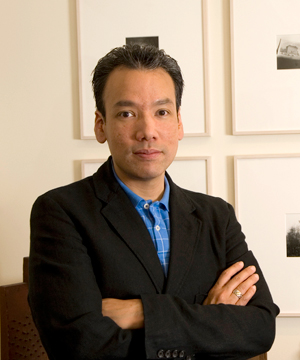Rob Lue
Harvard University recently embarked on a grand new experiment in interactive and online teaching and learning, and participants from around the world are streaming through the door, figuratively speaking. The endeavor, called edX, is an innovative program to enhance on-campus learning while also providing a high quality educational experience for online participants around the globe. Harvard expected the concept to be popular, but reality is exceeding expectations. Already more than 160,000 online participants have enrolled in Harvard’s first two edX courses, launched on October 15, 2012.
EdX is a not-for-profit enterprise founded by Harvard University and the Massachusetts Institute of Technology in May, and later joined by the University of California, Berkley and the University of Texas. Robert Lue, who is the Director Life Sciences Education and Professor of the Practice in the Molecular and Cellular Biology (MCB) department, directs Harvard’s edX – dubbed HarvardX.
HarvardX’s offerings for this fall are Introduction to Computer Science (CS50x) and a higher-level public health course in epidemiology and biostatistics Health in Numbers: Quantitative Methods in Clinical & Public Health Research (PH207x). “We ultimately hope to create a series of edX offerings that reflect the diversity of all of Harvard’s schools and departments, and that shows the breadth of intellectual engagement and opportunities for learning at Harvard,” says Lue.
These are not your older brother’s online courses; they are a total redesign of interactive learning. Until now, online university course offerings have been essentially videos of classroom lectures or some third-party conversion of an existing course. In contrast, for edX courses, faculty have developed new online components that are interleafed into the course in novel and creative ways. “The faculty members have to explore different ways of presenting materials, and that challenges them to rethink their courses and how they teach it,” says Lue. The on-campus course is a springboard for the integrated online components, which include interactive tutorials, online discussions, embedded assessments, video lesson, immediate feedback, questions and answers, online laboratories, and self-paced learning.
Part of what makes developing edX courses so challenging is the need to address two very different audiences: on-campus students and off-campus online learners. For off-the campus participants, the online component is a self-contained, full learning experience, unlike any that has ever been offered on the web. For on-campus students, HarvardX creates “bi-directional bridges between the wider world that feeds back into what our students are doing and aligns with our larger priorities of teaching and learning,” Lue explains. “Using elements of the online offerings will change the way we use time in the classroom and allow us to spend more time in Socratic discussion and debate rather than lecturing.” Because students learn the fundamentals outside of the classroom, this re-focuses class-time on students’ active learning rather than passive listening – which Harvard believes is how teachers should be presenting material.
For Harvard as an institution, edX serves two purposes. First, it furthers Harvard’s commitment to providing top quality educational experiences to the widest range of individuals than has ever been reached before. At the same time, it’s a learning lab for the institution’s educators, who are using HarvardX courses to research how students learn and how technology can transform learning in the classroom and worldwide via the web.Expectations and Objectives
EdX directors recognize that off-campus participants have varying time demands. HarvardX activities will start about 5 weeks after the on-campus classes start. Some courses will expect participants to complete the work within the semester. Others may have more flexible time expectations – in the general trend of moving away from lock-step learning.
CS50x requires no prior computer programming experience. Off-campus participants will probably spend 15 to 20 hours per week on the work to finish at the end of the semester, but students may take up to five months to complete the work.
PH207x suggests that students have “a sound grasp of algebra.” This course may require 10 hours per week for off-campus participants.
Off-campus participants will also have varying objectives. They may want professional development, credentials or preparation for graduate school, or enrichment in a new field. High school students may want a higher-level math, or practicing engineers may want to brush up.
“The whole effort is an experiment, so we need to see who comes for what, and how we might best teach a given topic. This will allow us to improve and evolve our offerings based on research,” says Lue. The spring offerings are in the process of being determined. But Lue is sure about one thing. EdX will be transformational!
News about EdXRemarks by Drew Gilpin Faust, President of Harvard: May 2, 2012Harvard Gazette, May 2, 2012:
MIT and Harvard announce edXMIT News: July 24, 2012:
UC Berkeley joins edXWBUR Radio Boston: August 20, 2012
The Future of Higher Education (with MIT researcher Anant Agarwal and the president of edX)The Harvard Crimson: September 6, 2012
EdX To Offer Proctored Final Exam For One CourseCollegeClasses.Com: October 17, 2012
Harvard EdX Enrolls Near 100,000 Students for Free Online ClassesThe Harvard Crimson: October 23, 2012
The Future of Scholarship: EdX is an admirable ventureTechnology Review: November 12, 2012
Online Courses Put Pressure on Universities in Poorer Nations
HARVARDgazette: March 18, 2013


